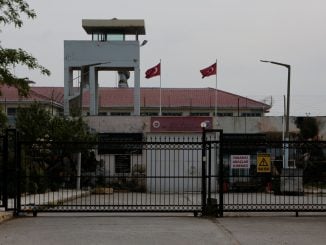PARIS/ISTANBUL — U.S. trade sanctions against Turkey could destabilize the region and ultimately bolster regional terrorism and the refugee crisis, Turkish Finance Minister Berat Albayrak claimed on Monday.
Albayrak, speaking at a news conference after meeting his French counterpart Bruno Le Maire in Paris, used the opportunity to take aim at the United States and to highlight Ankara’s push for better ties with Europe given the deepening rift with Washington.
The standoff with the United States over an American evangelical Christian pastor Andrew Brunson, of Montreat, N.C., detained in Turkey on terrorism charges has helped accelerate a crisis in the Turkish lira, which is down about 40 percent this year. President Donald Trump this month authorized a doubling of duties on aluminum and steel imported from Turkey.
Investors are also worried about a U.S. Treasury investigation into majority state-owned Turkish lender Halkbank, which faces a potentially hefty fine for allegations of Iran-sanctions busting. The bank has said all of its transactions were legal.
“These steps taken with political motivation will not only impact the global financial system but also global trade and regional stability,” Albayrak, who is the son-in-law of Turkish President Tayyip Erdogan, said.
“With the damage (the steps) will cause to regional stability, they will unfortunately contribute to chaotic problems that feed terrorism and also the refugee crisis.”
Albayrak said Turkey wanted to take its relations with the European Union to a new phase where trade with the bloc is more important.
Recent unilateral steps taken by the United States had shown that relations between Turkey and the EU, namely France, were more important than ever, he said.
Albayrak also said France and Turkey shared the same position against one-sided decisions by the United States regarding Iran, and that they had decided to take joint steps in this regard.



